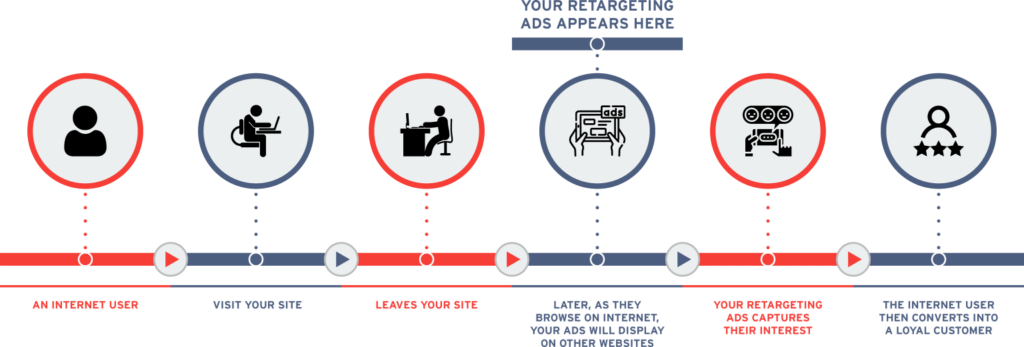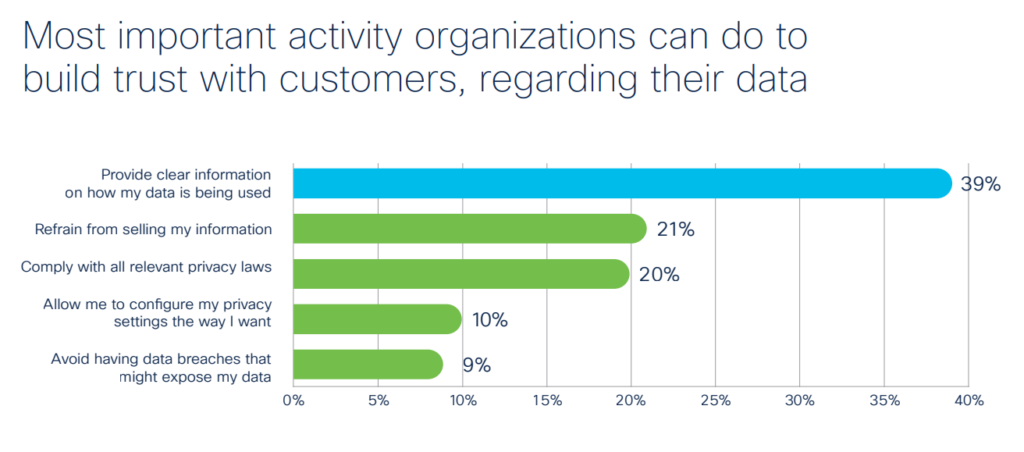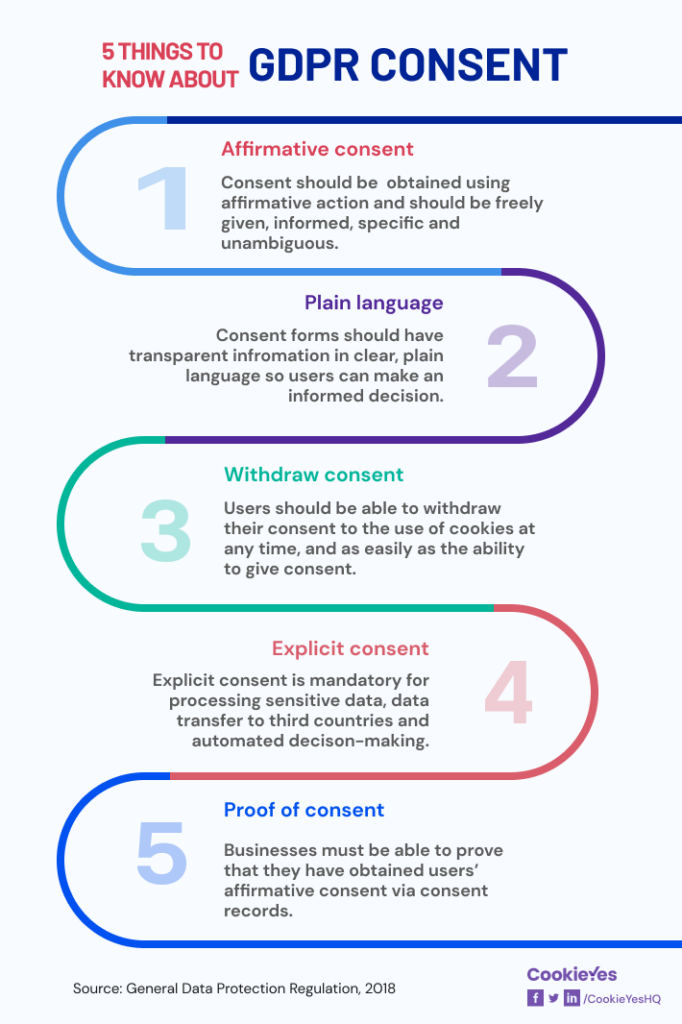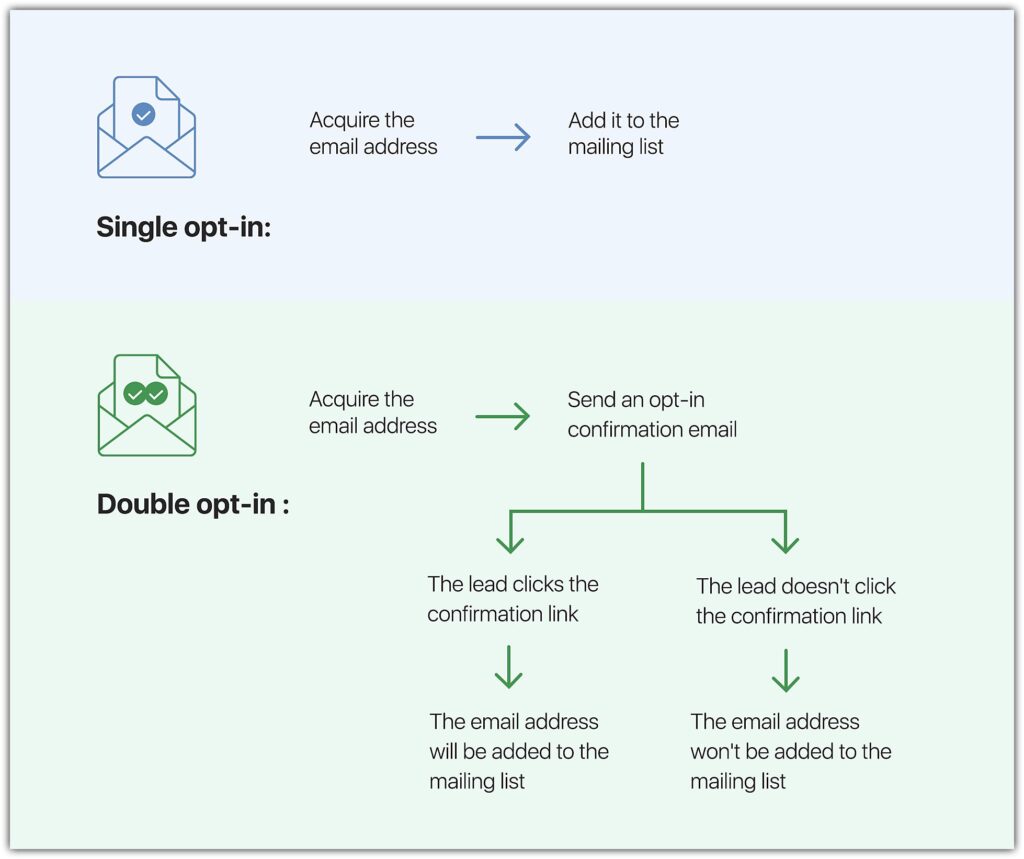Meta was fined $1.3 billion in a data privacy breach in 2023 which happens to be the highest fine ever. Fines like these aren’t uncommon. With 137 out of 194 countries having proper legislation to secure consumer data and privacy, it’s the right time to consider data privacy in digital marketing seriously – if you aren’t already.
People, in general, are concerned about their privacy when they are using the internet. As a business and marketer, you have to proceed with extreme caution when collecting, using, storing, and dealing with customer data of any type.
What is Data Privacy in Digital Marketing?
It refers to the protection and privacy of personal (and other) information collected by businesses for marketing purposes. For example, when you run a lead generation marketing campaign, your ideal customers enter their names and email addresses in the form to enter the sales funnel. The information you collect must be protected to ensure security, privacy, and ethical business practices.
One of the common examples when you have to use data in marketing is for retargeting campaigns. You track visitors using cookies to bring them back to your website. This is one form of data collection that brands use in marketing:

As a marketer, you need to be transparent with your data privacy policy by clearly sharing details with the target audience. A study reported that 94% of businesses say that people won’t buy from them if their data isn’t properly protected. More than 120 countries have data protection laws to ensure the safety and protection of their citizens’ data.
Importance of Data Privacy in Digital Marketing
Here’s a list of major benefits that make data privacy important for your business:
1. Regulation compliance
Data privacy makes your business compliant with local and international laws such as the General Data Protection Regulation (GDPR) and the California Consumer Privacy Act (CCPA). The GDPR, for example, requires businesses to follow data protection principles, ensure data security, and seek consent from the subject.
Not following GDPR rules might lead to high fines that go as high as €20 million.
The existence of local and international data privacy regulations and laws means you have to comply with them to avoid fines, lawsuits, and other legal issues. You don’t have to be physically located in another country to get fined, and this is the tricky part.
For example, you might get fined for GDPR violation even if you aren’t located in the EU:

Data privacy policy and management help you stay compliant with all local and international laws. More on this later on how you can make your website compliant.
2. Customer trust
How brands collect and use data is a key concern for consumers and it has a direct impact on customer trust. A Cisco study where it collected data from more than 130 countries reported that consumers trust companies that provide them clear information on how their data is being used:

As much as 48% of people stop buying from a company if they assume that their data is being misused or isn’t safe.
When you are transparent with your audience and have high standards of data privacy and security, it significantly increases customer trust. Your ideal customers are well aware that businesses collect data and most of them don’t hesitate to share data, it comes down to how you use it afterward.
3. Improved marketing effectiveness
A study found that 73% of businesses say that their marketing effectiveness enhanced when they adopted best practices for data privacy, consent, and preference management:

There are multiple reasons for this:
- You gain customer trust with data privacy which leads to more engaged customers, better relationships with existing customers, and reduced churn
- Preference management improves personalization and targeting
- Customer consent builds trust leading to brand loyalty
- Better customer experience across all marketing channels and touchpoints.
Here’s an example of how ethical data practices improve marketing outcomes. A survey reported that 57% of people are uncomfortable when they see an ad after interacting or talking about the brand. Not only are these ads impersonalized, they make your target audience uncomfortable and they might never buy from you.

With data privacy in action, you are least likely to run an ad campaign based on mere interactions. You’ll only use data when you have explicit consent from the subject to use it for personalized ads.
Consent-driven marketing campaigns work extremely well in terms of engagement, ROAS, and ROI.
4. Brand reputation
Data security has a massive impact on brand reputation. As much as 71% of CMOs believe that the biggest cost of data security breach is a decline in brand value:

Your data management policy doesn’t impact your reputation on normal days when things are moving smoothly. It gets problematic when you have a breach. In case of a data breach, which is a consequence of poor data security, you’ll end up having an instant decline in customer trust and brand reputation.
A report revealed that 83% of people say that they will stop buying from a company after a data breach and won’t buy for several months after the breach while 21% said that they will never return to that business.
The way you manage, store, and secure consumer data for marketing and business purposes impacts your reputation. Avoid leakages and breaches to stay safe.
How to Ensure Data Privacy in Digital Marketing
Sharing your privacy and data security policy with your target audience is becoming an essential part of marketing campaigns. Here’s a list of best practices on how to use it effectively in marketing:
1. Have a data privacy policy
Do you have a formal data privacy and security policy at your organization? Is your privacy policy written, distributed, and understood by all the teams and employees? Do your employees follow a privacy policy?
These are some of the basic questions that define how actively your brand follows data privacy.
Most businesses have a formal privacy policy that’s implemented across their marketing channels, especially websites. But it isn’t followed religiously by the marketing and/or sales departments and in the worst cases, there isn’t any active tool for data protection and security.
And this is where it gets problematic.
Having a consumer data protection policy is one thing and following it is another. If your brand lacks policy implementation and execution, it needs to be addressed immediately.
You are also required by law to have a privacy policy published on your website. For example, CCPA, GDPR, and third-party sites like Meta Ads require you to have a consumer data privacy policy on your website.
So, you need to have two things:
- Consumer data privacy policy for internal and external use
- A privacy document for your website.
Here’s an example of a privacy policy page on Medium:

Use this free privacy policy template tool to generate a privacy page for your website.
Follow these guidelines for creating and executing a privacy policy:
- Divide privacy policy into different sections
- Clearly explain how you collect data, what type of data you collect, how you use the data, and how it is saved
- Explain how you collect and use data for marketing purposes
- Use simple language
- Update your privacy regularly based on changes in the ways you collect user data
- Share a link to your privacy policy when collecting data from customers.
2. Collect essential data only
Don’t collect data for the sake of it. You should only collect information that you need for marketing.
For example, a common example of data collection is during the lead generation process where visitors have to fill out a form to get a free resource. You only need the email address and name of a subscriber for lead generation, all other information such as country, phone number, or other personal details aren’t needed.
Here’s an example of a lead form that is collecting too much information:

The thing is: You can always collect additional information (if needed) when you have an email address. Send an email and ask for additional information or ask subscribers to update their profile. However, collecting all the details upfront is too much for data privacy security.
On a side note, more form fields have a negative impact on conversion rates as well. A study reported that the conversion rate decreases significantly as the number of form fields increases.
When you collect non-essential information, it impacts your business in multiple ways:
- You have to spend more on data storage and security
- In the event of a data breach, you’ll end up losing a lot of personal data which might backfire and hurt your business reputation as opposed to when you lose email addresses along with names
- More data means more responsibility.
So, collecting more data backfires in two ways – and thus – it should be avoided.
3. Get explicit consent
Getting consent from website visitors and customers is an important part of data transparency. It is also a requirement of GDPR and ad networks like Google Ads.
According to GDPR, the consent should be:
- Freely given
- Specific
- Informed
- Unambiguous
- Able to be revoked.
You need to inform visitors what type of data you are collecting, how it will be used, and how they can opt out of it if they don’t need their data to be collected.
Here’s an example of what’s accepted as explicit consent:

Here’s another example:

Follow these best practices to obtain explicit consent for enhanced data transparency:

- Avoid pre-tick boxes rather than force visitors to tick the box that shows their consent
- The consent request needs to be prominent and visible
- Use simple language that describes the type of content clearly
- Make consent withdrawal easy and clearly guide visitors on how they can opt out
- Get new consent for a different marketing campaign. Consent needs to be purpose-specific and not general all-purpose. For example, a person signed up to receive a monthly newsletter shouldn’t be auto-enrolled in the weekly blog post series email
- Keep track and proof of consents, when they were given, and for which campaign they were given. This can be easily tracked by your email marketing app
- Add a link to your privacy policy so that visitors can get more information when needed. One in five people always or often read privacy policy before agreeing to it so make sure you link to it when seeking consent.
4. Use double opt-in
Double opt-in refers to the process of adding an extra step in the email sign-up process where new subscribers have to confirm their email address via a link or code sent to their email addresses:

It makes your marketing practices compliant with laws and it tells your subscribers (and potential customers) that you take their data and privacy seriously. It improves brand reputation significantly. Of course, it has other benefits like improved email deliverability and a clean email list.
You are required by law to have double opt-in in several countries including Australia, Greece, and Norway. Not using double opt-in for email marketing and list building doesn’t necessarily mean you aren’t getting consent. However, it adds an extra layer of security.
Perhaps the most important aspect of double opt-in is that it is directly linked to your customer’s perception of your brand. It helps you improve your brand reputation by signaling to subscribers that you take their privacy and consent seriously.
A study reported that 87% of people want to know how their personal information is used by businesses and when customers trust a brand with their data, they spend more with such companies.
Double opt-in helps your business in more than one way, don’t go without it.
5. Limit access to data
Data security is a crucial aspect of data privacy. You are the custodian of customer data and must ensure its safety. Limiting and minimizing access to data is one of the best ways to avoid data breaches.
As much as 88% of data breaches are a result of a human error with 45% of people citing distraction as the top reason for falling for a phishing scam. Another study reported that 60% of data breaches are attributed to an insider. The estimated annual cost of an insider threat is well over $11.5 million.
Being pressured or stressed is the primary reason for insider data breaches followed by mobile phone usage and tiredness:

The best you can do to avoid these internal data breaches (intentional and accidental) is to minimize access to data. Here’s a list of techniques you can incorporate to limit access to customer data:
- Use the principle of least privilege (PoLP) to limit rights access to data to authorized and approved individuals only
- Improve security standards. Consider using identity and access management tools
- Set rules for accessing data and ensure they are followed. For example, not using mobile phones and not clicking any link when accessing or interacting with data
- Marketing teams usually don’t need direct access to data as they work via tools and apps, so it is best to use relevant tools and give access to the right people
- Screen recruits especially those who’ll have access to data
- Educate and train your employees so they know the importance of cybersecurity.
6. Educate your team
You can effectively deal with data privacy in marketing, data security, and breaches by educating your employees. Almost all types of data breaches can be minimized significantly with employee training.
Having the most sophisticated data security infrastructure and a robust data governance strategy means nothing if your employees don’t know the basics of cybersecurity. They might become your biggest enemies unknowingly.
The cost of cybersecurity incidents per employee per year is estimated to be $1,197 whereas security training costs under $25 per employee per year:

It isn’t a bad deal, after all considering the fact that up to 82% of data breaches are linked to the human element which means you can significantly reduce data breaches with employee training and education alone.

This is a reason why 85% of businesses are planning to increase their cybersecurity budgets in 2024.
You don’t have to necessarily hire an outside trainer, your IT team can conduct basic-level cyber security sessions. Here’s a list of the basic training and education that your workforce should get:
- Understanding of a phishing attack and how to spot and avoid it
- Importance of using strong passwords and multifactor authentication
- How to find and report suspicious activity
- Importance of following security protocols, rules, and SOPs
- Impact of data breach on business and employees
- Why they should avoid using public and untrusted Wi-Fi networks
- How to ensure security when accessing important data from their home or any outside location.
7. Use a data management platform
Do you have the right tech stack for data security, transparency, privacy, and management? Having an email marketing platform and CRM tool doesn’t guarantee data security. You have to use dedicated data security tools.
Unfortunately, most businesses don’t use proper tools for the security of first-party data, and this is suicidal. As third-party data is becoming obsolete and businesses need to switch to first-party data for marketing and advertising, it is essential to have the right apps in your stack for data security.
Right software also helps you in data analytics, insights, and customer profiling in a secure environment. It calls for using a data management platform:

A data management platform (DMP) is a tool that collects, stores, and shares customer data. Adobe Audience Manager is an example of a DMP. When you use a platform like DMP, it doesn’t just provide data security, it helps data management and makes it easy to use data in marketing.
For example, most of the DMPs offer governance and security features to ensure data integrity.
You need to integrate DMP with your CRM, marketing automation, lead scoring, and other marketing tools. And this creates the right set of platforms for your business that keeps data centralized and secure.
Here’s a list of the popular DMPs to choose from:
Conclusion
You need a flexible and adaptive approach to data privacy in digital marketing. Your policy needs constant tweaks as you switch between tools and change your marketing strategy as no two marketing platforms have similar data privacy requirements.
The need for data privacy and management will increase in the future as we are heading towards smart devices and homes. The more data an average person generates, the more laws and requirements you, as a marketer, have to deal with.
Treat data carefully and be transparent. It will keep you safe and your brand reputable.
Featured Image: Pexels



